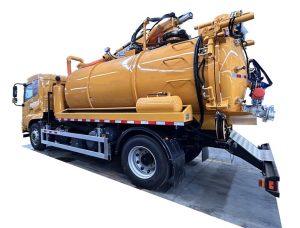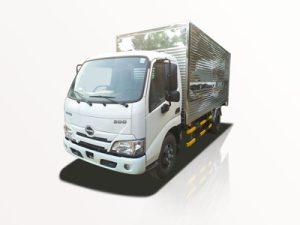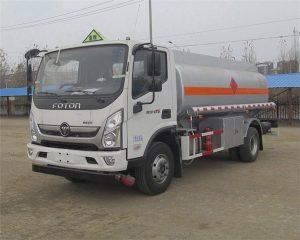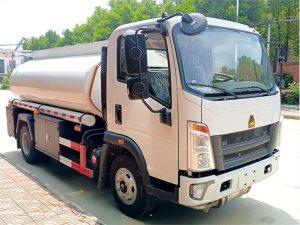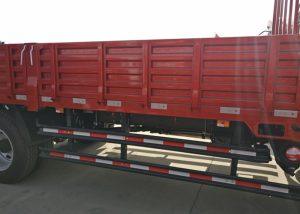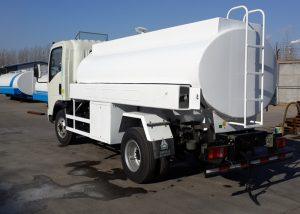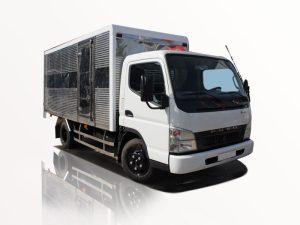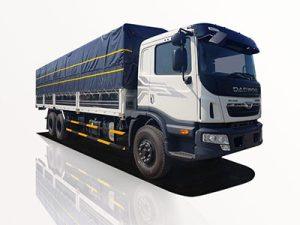Monday to Saturday - 8:00 -17:30
Sewage Truck for Sale: The Ultimate Guide to Finding the Right Truck for Your Needs
When it comes to managing wastewater and sewage disposal, finding the right sewage truck is essential for ensuring efficiency and compliance with regulations. Whether you’re a contractor, municipality, or service provider, investing in a sewage truck can enhance your operations significantly. This comprehensive guide will explore everything you need to know about sewage trucks, including features, types, pricing, and where to find them for sale.
Understanding Sewage Trucks
What is a Sewage Truck?
A sewage truck, also known as a vacuum truck or a septic truck, is designed to transport and dispose of liquid waste, primarily sewage. These trucks are equipped with a large tank, pumps, and a vacuum system that allows them to suck up waste efficiently. Their primary use includes pumping out septic tanks, cleaning sewer systems, and emergency waste removal.
How Sewage Trucks Work
Sewage trucks operate using a vacuum system, which creates negative pressure within the holding tank. This system allows for the suction of waste from various sources. After collecting the sewage, the waste is stored in the tank until it reaches a treatment facility or an approved disposal site.
Key Components of a Sewage Truck
| Component | Description |
|---|---|
| Vacuum Pump | Creates suction to draw waste into the tank. |
| Holding Tank | Stores the collected sewage until disposal. |
| Hoses and Attachments | Used to connect the pump to the waste source. |
| Control Panel | Allows operators to regulate the suction and waste flow. |
Types of Sewage Trucks
1. Standard Vacuum Trucks
Standard vacuum trucks are versatile and the most common type used for sewage removal. They typically come with a tank capacity ranging from 1,000 to 3,000 gallons. These trucks are suitable for residential and small commercial applications.
2. High-Volume Vacuum Trucks
High-volume vacuum trucks are designed for large-scale operations. With tank capacities over 3,000 gallons, they are capable of handling bigger jobs, like industrial waste disposal and municipal sewage management.
3. Combination Trucks
Combination trucks feature both vacuum and jetting capabilities. This means they can not only remove sewage but also clean sewer lines using high-pressure water jets. These are ideal for comprehensive sewer maintenance.
4. Portable Restroom Trucks
These trucks are specialized for servicing portable restrooms at events or construction sites. They typically come equipped with smaller tanks designed for frequent emptying and servicing.
Factors to Consider When Buying a Sewage Truck
1. Tank Capacity
The capacity of the sewage tank is crucial. Depending on the volume of waste you’ll be handling, you should choose a truck with a suitable tank size to reduce the frequency of emptying the tank.
2. Pump Type and Power
Consider the type of vacuum pump and its power. A more powerful pump can suction waste more efficiently, making tasks quicker and reducing downtime.
3. Build Quality
The truck’s build quality is important for longevity and reliability. Look for durable materials like stainless steel or aluminum, which resist corrosion and wear from sewage exposure.
4. Regulatory Compliance
Ensure that the sewage truck complies with local and federal regulations. This includes safety features, environmental standards, and certifications.
5. Cost and Financing Options
Understanding your budget and available financing options is essential. Prices for sewage trucks can vary significantly based on type, size, and features, ranging from $30,000 to over $150,000.
Where to Find Sewage Trucks for Sale
1. Online Marketplaces
Digital platforms such as eBay, Craigslist, and specialized equipment auction sites often list new and used sewage trucks. Be cautious and review listings carefully to ensure credibility.
2. Manufacturer and Dealer Websites
Many manufacturers such as Kenworth, Freightliner, and International have classified sections on their websites where you can find both new and used units for sale. These sources often provide warranties and support.
3. Local Dealerships
Visiting local dealerships can give you a chance to inspect the vehicle firsthand. Dealers often have certified pre-owned options that increase reliability.
4. Trade Shows and Expos
Attending trade shows and expos related to the waste management industry can lead to discovering trucks available for sale, as well as networking opportunities with suppliers.
5. Classified Ads
Check newspapers and industry-specific publications for classified ads offering sewage trucks for sale.
Maintenance Tips for Sewage Trucks
1. Regular Inspections
Conduct thorough inspections regularly to identify issues before they escalate. Check the vacuum pump, hoses, and tank for leaks or wear.
2. Clean the Tank Frequently
After significant use, clean the tank to prevent residue buildup, which can cause odors and contamination.
3. Monitor Fluid Levels
Keep a close eye on oil and hydraulic fluid levels to ensure the truck operates at peak performance.
Practical Examples of Sewage Truck Uses
1. Residential Septic Services
Many sewage trucks are used by companies providing septic tank pumping services for homeowners. Regular maintenance is necessary to prevent tank overflow, ensuring sanitary conditions.
2. Municipal Waste Management
Municipalities use sewage trucks for cleaning sewer lines and maintaining public sanitation services, fulfilling regulatory obligations.
3. Disaster Response
During emergencies such as floods, sewage trucks play a vital role in pumping out excess wastewater and preventing public health crises.
4. Commercial Property Maintenance
Businesses with large restroom facilities, such as shopping malls or event centers, rely on sewage trucks for regular waste removal and cleanliness.
Cost of Owning and Operating a Sewage Truck
1. Initial Purchase Costs
The cost of a sewage truck generally ranges from $30,000 for used models to upwards of $150,000 for new, high-capacity models. The cost will depend on the type, brand, and additional customizations.
2. Operational Costs
- Fuel: Fuel costs depend on the truck’s engine efficiency and usage.
- Maintenance: Regular maintenance is necessary; budget for parts, labor, and fluids.
- Insurance: Insurance is necessary for liability and may vary significantly by region.
3. Revenue Potential
By offering sewage removal services, many operators can generate significant income. With proper marketing and service quality, revenue can reach into six figures annually for active businesses.
Common FAQs About Sewage Trucks
1. What is the average lifespan of a sewage truck?
Most sewage trucks can last between 10 to 15 years with proper maintenance and care.
2. How often should I maintain my sewage truck?
Regular maintenance should occur at least every six months, or more frequently if the truck is used heavily.
3. Do I need a special license to operate a sewage truck?
Yes, operating a sewage truck typically requires a commercial driver’s license (CDL) and may have additional local requirements depending on the area.
4. Can sewage trucks be customized?
Yes, many manufacturers offer customization options to fit specific needs, whether it’s tank size, pump type, or additional features.
5. What should I look for in a used sewage truck?
Check the truck’s maintenance history, inspect for leaks, and ensure the vacuum pump and tank are in good condition.
6. Are financing options available for sewage trucks?
Yes, many dealers and manufacturers offer financing options to help buyers afford their purchase. Check with your financial institution for additional possibilities.


